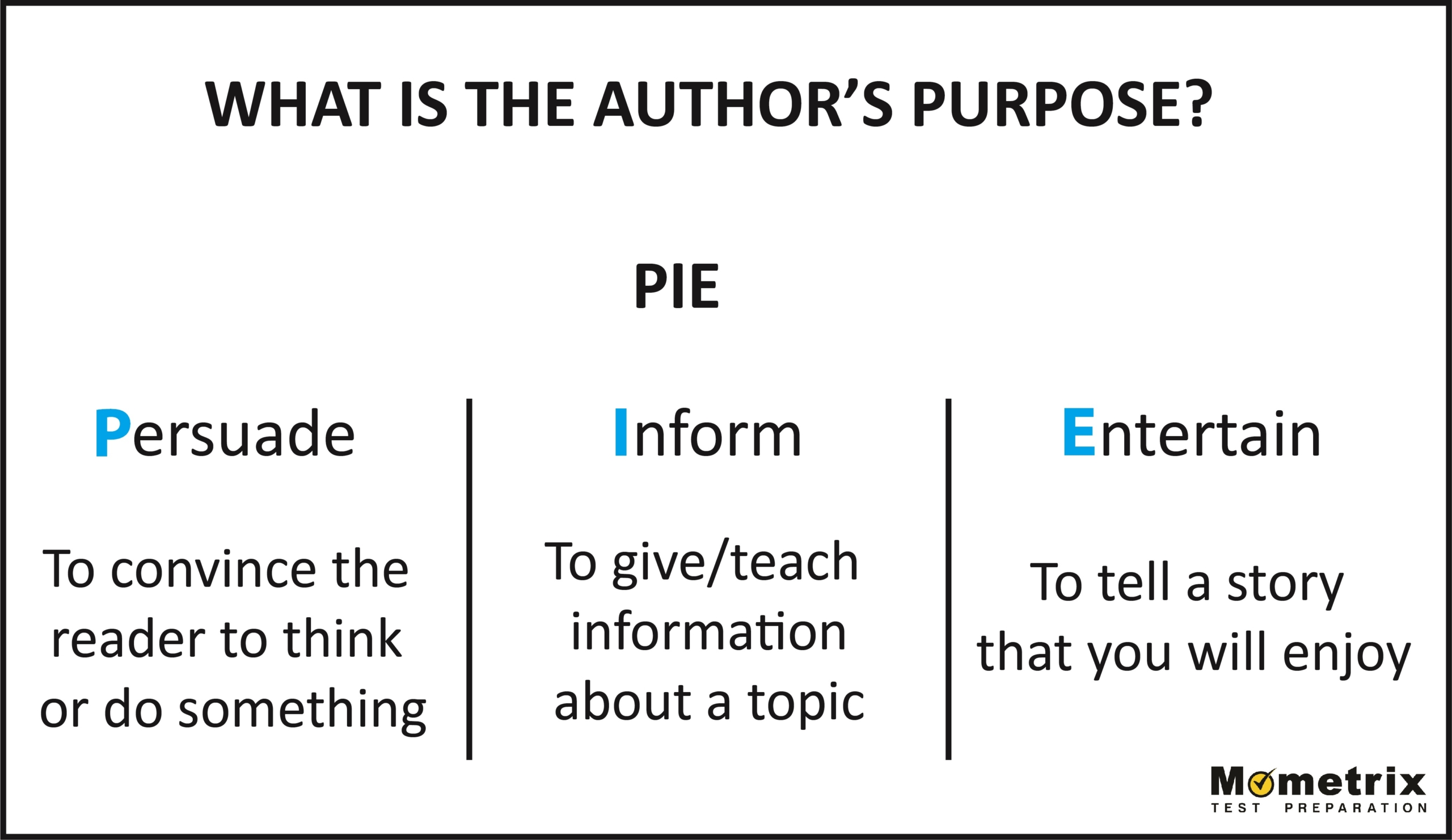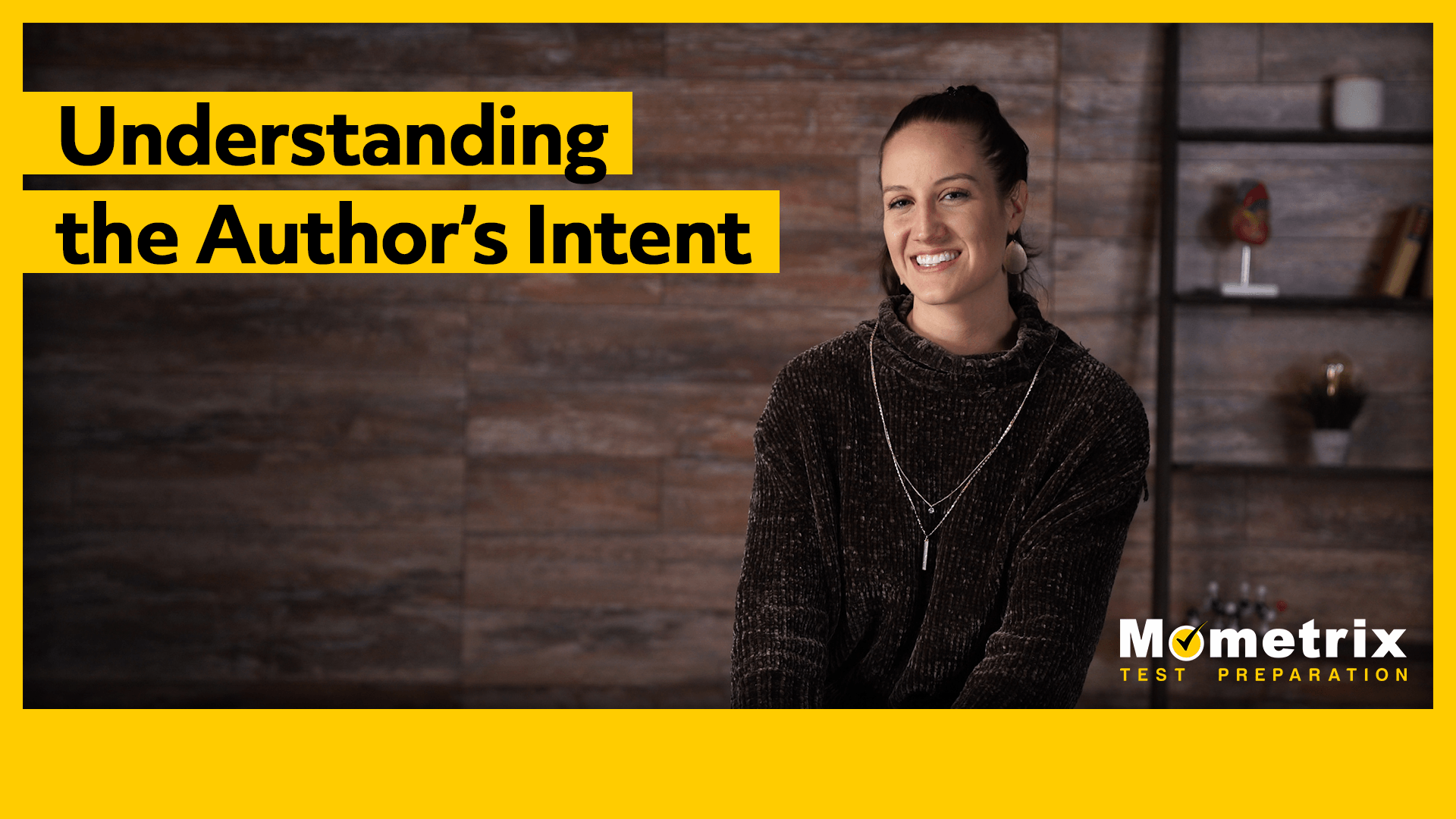
Charles Dickens’ masterpiece A Tale of Two Cities contains one of the most famous opening lines in all of literature: “It was the best of times, it was the worst of times.”
But what was Dickens’ intent or purpose in writing not only that line but the whole novel itself?
Welcome to this video about author intent and purpose. An author writes with a purpose, whether it’s to persuade, inform, or entertain. Let’s take a look.
P.I.E.
Do you like pie? I do. It doesn’t matter what kind of pie you like as long as you remember the three letters that make up pie, because that’s how you can remember the intent and purpose categories authors use most.

See? It’s easy as PIE.
Let’s take a closer look at the technique writers use to persuade, inform, and entertain.
Now, it may seem really easy to determine whether the author means to persuade, inform, or entertain. But in some cases, it isn’t.
First, let’s remember that writing encompasses a number of different fields. There are book authors, as we’ve noted. There are reporters who write for daily newspapers. Advertising and marketing representatives write on behalf of clients. In all cases, they’re writing with an intent in mind.
Persuade
Let’s start with persuasion. Persuasion, nowadays, takes a number of different forms. Companies use advertising and marketing to persuade the audience that their product is the best. Digital media platforms, in some cases, have a specific point of view and want to persuade their audience that they’re right. Book authors work in the art of persuasion. Any number of diet books on the market seek to persuade you that their plan will work for you. One of the most popular books of all time relies on persuasion. Dale Carnegie’s How to Win Friends and Influence People tries to persuade you that you too can become more popular.
Inform
Then there’s inform. News reporters have been informing the public for centuries on the important news of the day. But novelists also inform. They inform by recounting important historical events, or analyzing data, and presenting evidence to back up the claims.
Let’s take a look at a few books that aim to inform. The Paradox of Choice: Why More is Less explains, in an informative way, how the endless choices we have contribute to anxiety and depression. Any cookbook, like The Joy of Cooking, informs us how to use ingredients to make certain foods. And Flags of Our Fathers informs us about the story behind the most famous war photo in American history—the six men who raised the American Flag at Iwo Jima.
Entertain
Lastly, we use writing to entertain. Entertain can have a number of different meanings. Look at it this way. If the writing has elicited an emotional response, you’ve probably been entertained. The famous newspaper columnist Dave Barry and the editorial cartoonist Mike Peters each entertain with dry humor. The humorist Will Rogers entertained with his wry observations that included, “Even if you’re on the right track, you’ll get run over if you just sit there.” The classic To Kill a Mockingbird even entertains because it explores the injustices that happened during a time in American history.
Persuade. Inform. Entertain. Remember, it’s as easy as eating PIE.
So that’s our look at an author’s intent and purpose. I hope this overview was helpful!
See you guys next time!

